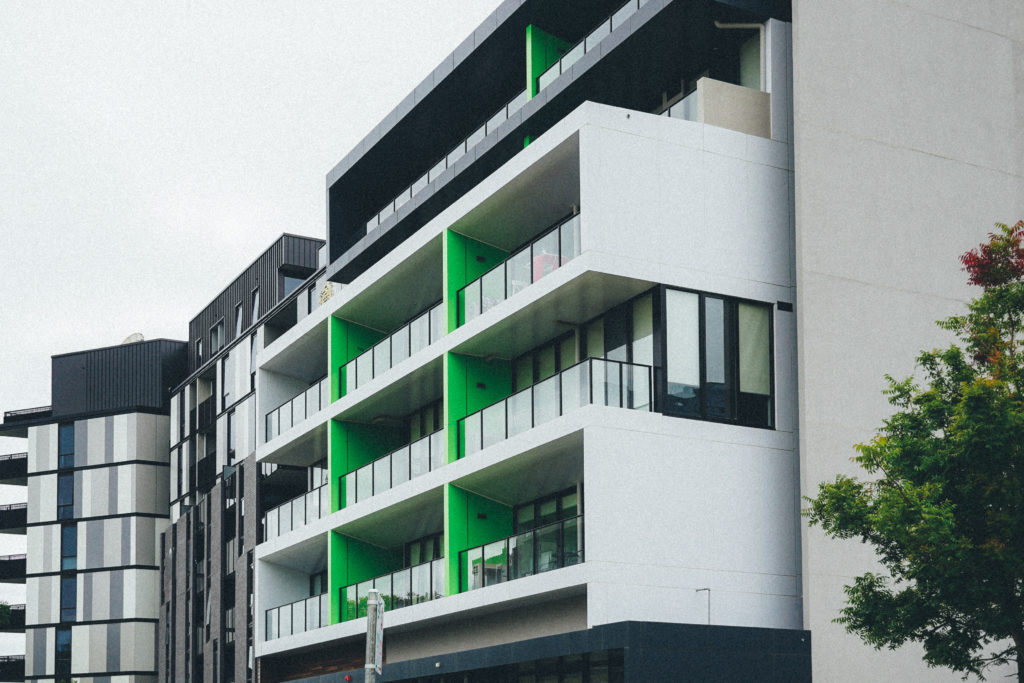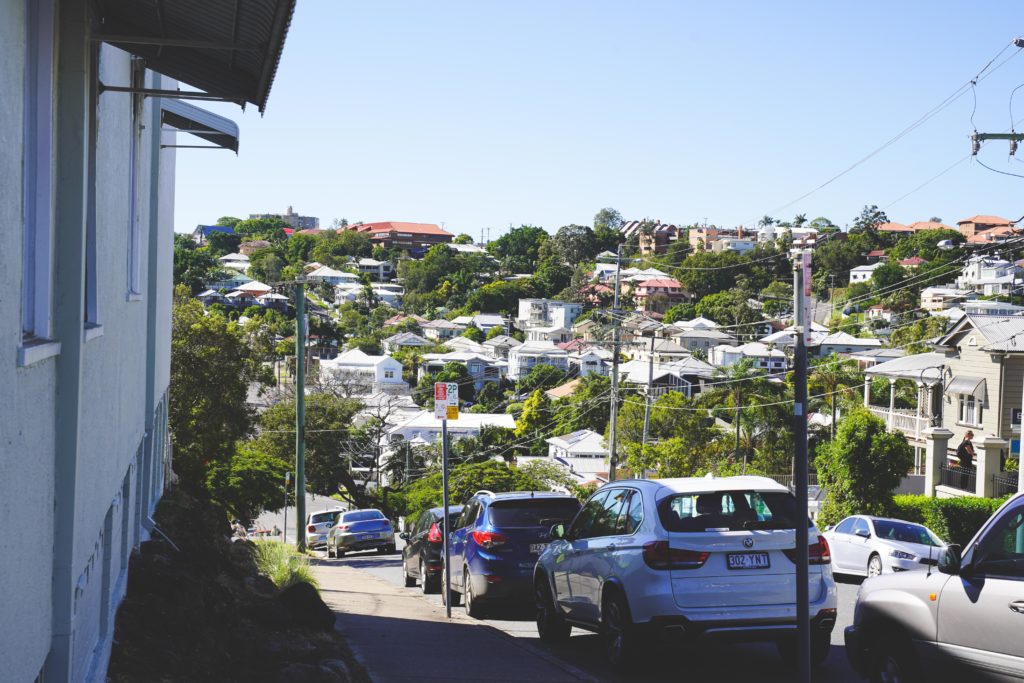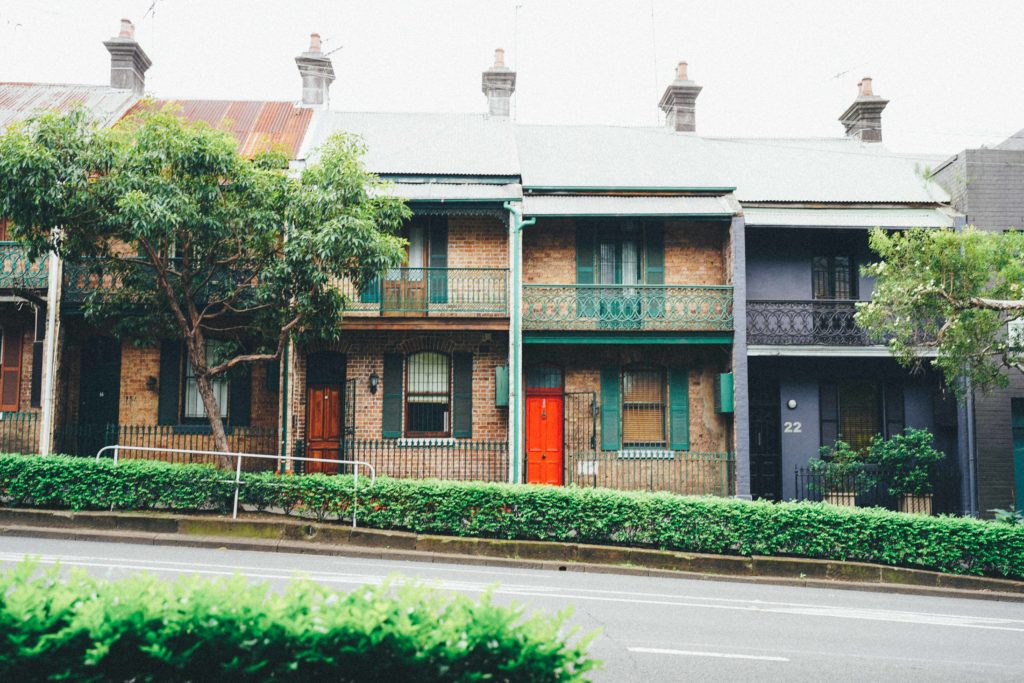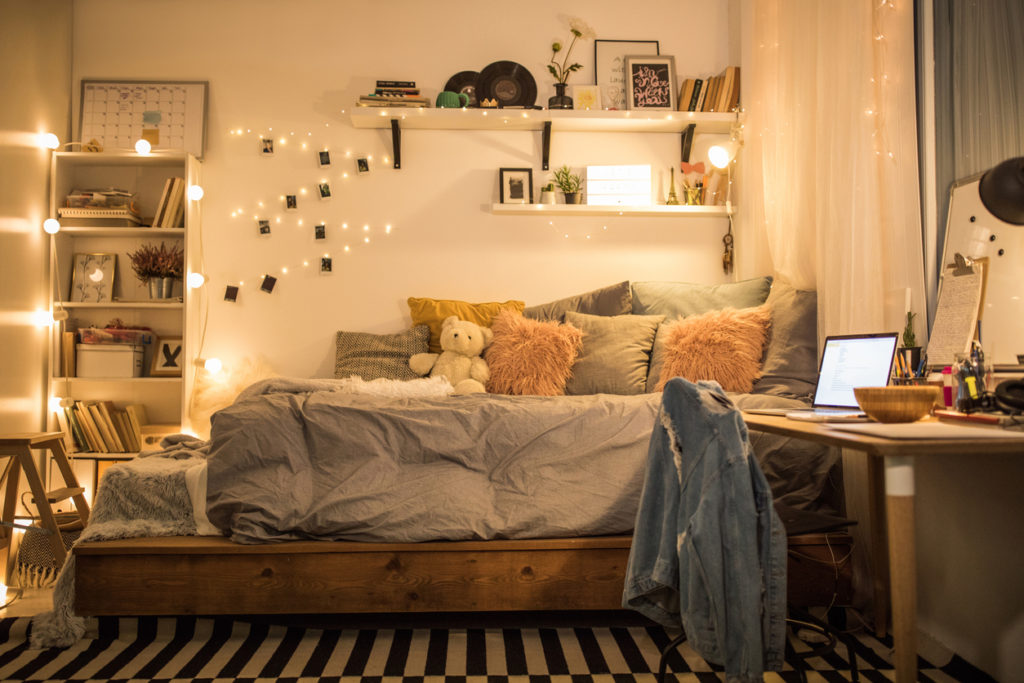A home is one of the most exciting purchases you’ll ever make. Plus, if you are able to save or borrow the money, getting into the property market can be a great way to get ahead financially as a student. Before you can do that though, there are a lot of things to assess when it comes to making such a big investment. On top of the financial and legal regulations around buying a house in Australia, you’ll need to find a home that suits your lifestyle and fits into your plan for the future.
To help you make the most educated decision, here’s our list of the biggest things to consider when buying a property.
House or apartment?

Are you looking to buy a standalone house or an apartment in a communal complex? When making a decision about the property type you buy, price and lifestyle will be major factors.
In general, buying a house in any of Australia’s capital cities is more expensive than buying an apartment. Usually located in the suburbs, a house offers more privacy and flexibility, as you will not have to follow any owners’ corporation or strata laws when it comes to your property. A house might also be a wise decision if you are hoping to start a family in the near future or you own a pet; it will provide more space both indoors and outdoors, with the possibility of a garden.
However, there are also plenty of advantages to apartment living. On top of the lower cost on average, if you choose to live in an apartment you will likely be closer to the city and everything it offers. Apartments are also lower maintenance and can give residents access to building facilities like gyms and shared gardens.
If you are buying an investment property rather than a home to live in, houses in Australia have shown stronger growth in value than apartments over recent years. However, this is changing as more people opt to move into apartments over houses. When it comes to renting out your property, it can be easier to find tenants for apartments. Considering the lower cost of investing in an apartment, rental income return can also be equal or even higher than a house.
Whatever you choose, you will need to do the math for your specific property options to find out whether a house or apartment is better for your future.
Location, location, location
As any budding property investor knows, the location has a huge influence on the value of a house or apartment. Budget will be a big factor when choosing a location, as prices are usually higher in the inner city and lower in the outer suburbs. If you are planning on living in your home, the location will likely be an easy choice, as you’ll want to live close to your university, work, friends and family, or a combination of all three.
On the other hand, if you are looking for an investment that will grow in value over time, the old saying “buy the worst house in the best street” probably applies. In other words, prioritise the location over the house or apartment itself, because the land underneath it is likely to drive the value growth. Before buying, you should research property value growth and average rent prices in different neighbourhoods and consider if and when you would hope to sell.
Get to know the neighbourhood

The type of neighbourhood where your future home is located and the amenities it offers are other important considerations. Do you like the hustle and bustle of the inner city or the space and freedom of the suburbs? You might be looking for an affordable investment property in the city, or a home that offers a more laidback lifestyle with public transport within walking distance.
Proximity to parks and schools can also have a substantial effect on property values. Before making a purchase, you should spend some time exploring the neighbourhood where the house or apartment is located and deciding which features are important to you.
Already built or off the plan?
Many apartments and townhouses can be purchased off the plan. This means buyers are able to lock in a purchase at today’s prices with a commitment to pay when the development is completed. Buying off the plan can be an attractive option financially, but you should make sure to only deal with a developer you trust and to read the fine print of the contract before signing to avoid disappointment with the finished product.
On the other hand, the main advantage of buying a built and ready-to-move-in home is being able to see, touch and feel the quality of the finish, materials, layout and aspect. Plus, buying an already-built home offers peace of mind with respect to property values, as you will be able to see how the prices relate to similar properties in the area in real time.
Understanding the First Home Owners Grant

If you’ve started researching your finance options, you’ve probably heard of the First Home Owner Grant (FHOG). In Australia, the FHOG is designed to encourage and help eligible borrowers buy their first home. To be eligible, you must be an Australian citizen or a permanent resident of Australia and at least 18 years old. The size and conditions of the grant vary depending on which state you live in, but in most places, it applies to new houses and apartments only.
In New South Wales, for example, the government provides a $10,000 FHOG for land purchases (with the intention to build) up to $750,000, and for purchases of newly constructed homes up to $600,000, as well as no stamp duty for all homes up to $650,000, stamp duty reductions on homes between $650,000 and $800,000, and no insurance duty on lenders mortgage insurance. (Stamp duty and insurance duty are taxes usually applied to property purchases.) You must live in the home you buy for at least six months in the first year of owning the property in order to receive the grant.
Western Australia, Queensland and Victoria offer similar schemes, while the Northern Territory and South Australia provide even higher amounts and the ACT slightly less. Some states may offer higher amounts if you are buying a home in a regional area. You can find out more about the FHOG on the Australian Government’s First Home Owner Grant website.
To make sure you understand the legal and financial requirements of buying a home as an international student, make sure to check out our guide to buying a house in Australia.






